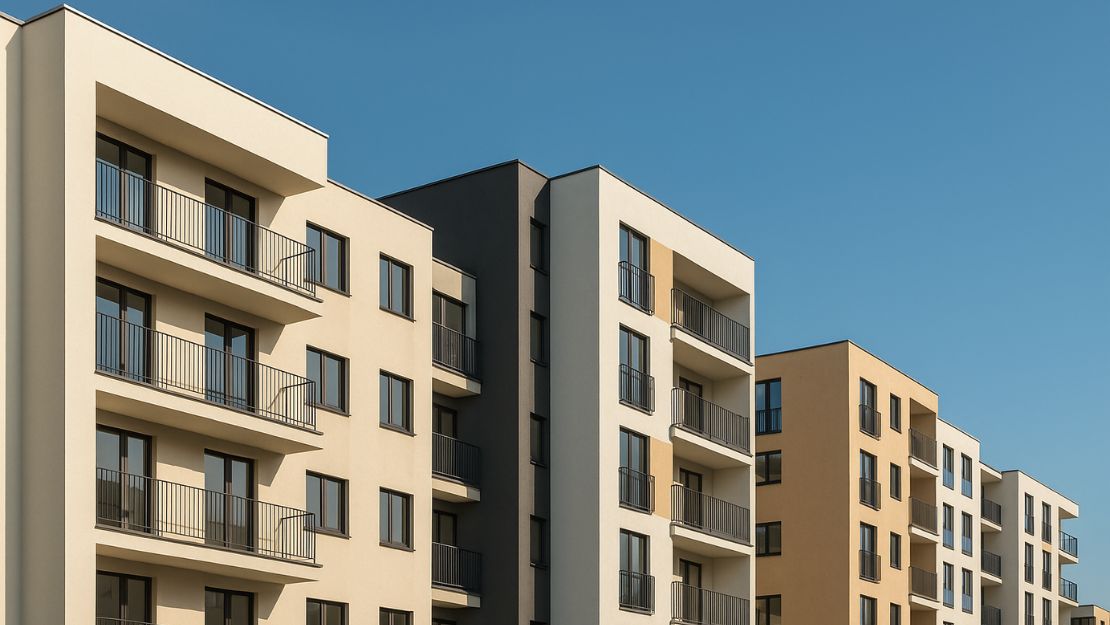Buying an Apartment in a Building: Who Handles Maintenance, Fees and Shared Rules? (2025)
If you're planning to buy an apartment in Croatia – or you already have – you may be wondering how life in an apartment building actually works. Who is responsible for the shared roof, stairwell or plumbing? How much are the monthly fees? Are there rules that everyone has to follow?
This guide answers the most common questions apartment buyers have in Croatia. We’ll walk you through how building management is organized, what the maintenance fee (pričuva) covers, how shared spaces are handled, and what to expect when it comes to renting and living with neighbors. The good news? The system is legally regulated and well organized – your responsibilities as a co-owner are clearly defined.
Which buildings does this apply to?
This building management system applies to:
• multi-unit residential buildings
• mixed-use buildings (residential and commercial)
• buildings with at least three apartments and more than one owner
It does not apply to:
• single-family homes with one or two residential units owned by one person
• standalone homes without other co-owners
If a building has three or more apartments and multiple owners, it must have a registered manager, a maintenance fund (pričuva), a set of house rules, and comply with clearly defined standards.
Who takes care of the roof, façade, stairwell and plumbing?
Shared building elements
Shared building elements include: the roof, façade, foundation, hallways, staircases, elevator, antennas, chimneys, and shared installations (electricity, water, gas, etc.)
All co-owners are legally required to contribute to the cost of maintaining these elements. That’s what the monthly maintenance fee is for.
What is the maintenance fee and how much does it cost?
The maintenance fee (pričuva) is a mandatory monthly contribution to the building’s shared fund. This fund covers regular upkeep, emergency repairs, and long-term improvements.
As of 2025, the amount is no longer arbitrary. It is based on an official construction benchmark price, published by the Ministry of Physical Planning – currently €993/m².
By law, the minimum annual fee is 0.54% of this amount per square meter of your apartment. For example:
• A 60 m² apartment × €993 = €59,580 × 0.54% = €321.73 per year or around €26.81 per month
• In a building with 4 units, the total monthly maintenance fee is usually between €100 – €150, depending on apartment sizes
Who manages the building?
Every qualifying building must have a registered manager.
This can be:
• a professional property management company
• a legal entity selected by the co-owners
• in smaller buildings – a resident, with full approval from all owners
The manager is responsible for:
• organizing and overseeing building maintenance
• managing and recording the maintenance fund (pričuva)
• communicating with service providers (plumbers, electricians, etc.)
• keeping to legal deadlines for regular inspections
• informing owners and coordinating decisions
If the building has no manager or fails to comply with regulations, it can be fined. In practice, however, most buildings have this well organized.
Are there building rules?
Yes – and they’re mandatory.
The house rules typically cover:
• when noisy works are allowed (renovation, drilling, music)
• regulations on pets in the building
• what cannot be stored in shared spaces (shoes, bicycles, trash, etc.)
Breaking the house rules can result in a warning, and in more serious cases, legal action.
Can you rent out the apartment?
Yes, but under certain conditions – especially when it comes to:
• short-term tourist rentals (e.g. Airbnb, Booking)
• renting to five or more unrelated people in the same apartment
In these cases, you need:
• approval from two-thirds of all co-owners in the building
• written consent from neighbors whose apartment shares a wall, ceiling or floor
Without these approvals, the manager has the right to request that rental activity be stopped, and the owner can lose the right to tourist categorization. Existing hosts have until the end of 2029 to comply.
What if you’re buying a house?
These rules do not apply to single-family homes with one or two units. They apply only to multi-unit apartment buildings with multiple owners.
Who pays for damage? What if a tile falls?
The manager must ensure that the building has a maintenance plan and insurance policy that covers shared elements – including damage to third parties.
That means:
• if a tile falls from the roof and damages a car – the insurance covers it
• if a shared pipe bursts and floods an apartment – insurance covers it
The law also defines how often certain building elements (like roofs, chimneys or elevators) must be inspected and maintained.
Conclusion
Buying an apartment in a building doesn’t have to be confusing or stressful.
Thanks to a clearly defined system, every building has someone in charge, all maintenance costs are fairly distributed through the shared fund, and building behavior is regulated by a house rule agreement.
For many buyers – especially those coming from houses – this lifestyle actually means fewer responsibilities:
• no private yard to maintain
• a collective system handles the façade, roof, safety and order
Before buying, it’s a good idea to check:
• who manages the building
• what the monthly fee (pričuva) is
• whether house rules are in place
• whether the apartment can be used as you plan (e.g. for rental)
If you're a foreign buyer considering relocation or seasonal living in Croatia, you may also want to read our full Residency Guide for Croatia – blog.
For any further questions – we're here to help you Marvel Real Estate contact

 Hrvatski
Hrvatski
 English
English
 Deutsch
Deutsch
 Slovenščina
Slovenščina
 Italiano
Italiano

